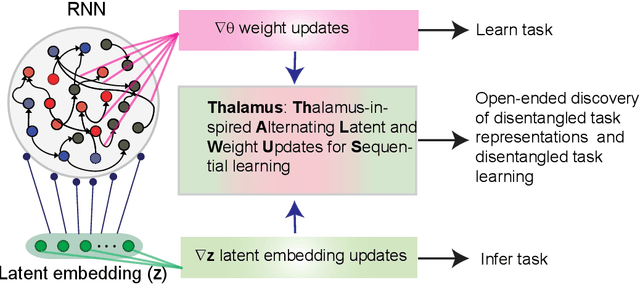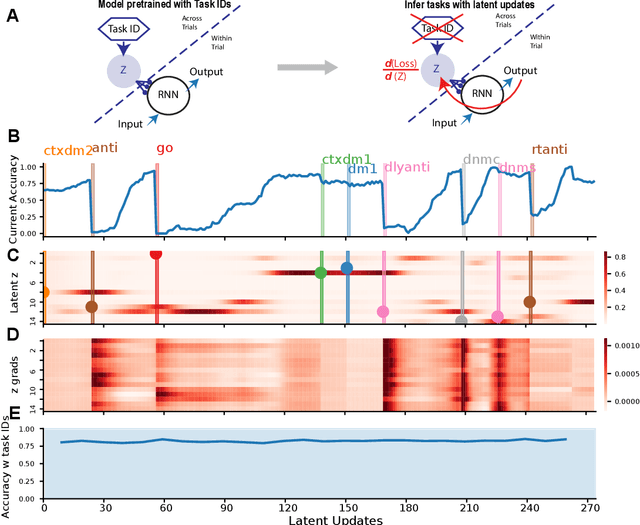Thalamus: a brain-inspired algorithm for biologically-plausible continual learning and disentangled representations
Paper and Code
May 24, 2022



Animals thrive in a constantly changing environment and leverage the temporal structure to learn well-factorized causal representations. In contrast, traditional neural networks suffer from forgetting in changing environments and many methods have been proposed to limit forgetting with different trade-offs. Inspired by the brain thalamocortical circuit, we introduce a simple algorithm that uses optimization at inference time to generate internal representations of temporal context and to infer current context dynamically, allowing the agent to parse the stream of temporal experience into discrete events and organize learning about them. We show that a network trained on a series of tasks using traditional weight updates can infer tasks dynamically using gradient descent steps in the latent task embedding space (latent updates). We then alternate between the weight updates and the latent updates to arrive at Thalamus, a task-agnostic algorithm capable of discovering disentangled representations in a stream of unlabeled tasks using simple gradient descent. On a continual learning benchmark, it achieves competitive end average accuracy and demonstrates knowledge transfer. After learning a subset of tasks it can generalize to unseen tasks as they become reachable within the well-factorized latent space, through one-shot latent updates. The algorithm meets many of the desiderata of an ideal continually learning agent in open-ended environments, and its simplicity suggests fundamental computations in circuits with abundant feedback control loops such as the thalamocortical circuits in the brain.
 Add to Chrome
Add to Chrome Add to Firefox
Add to Firefox Add to Edge
Add to Edge